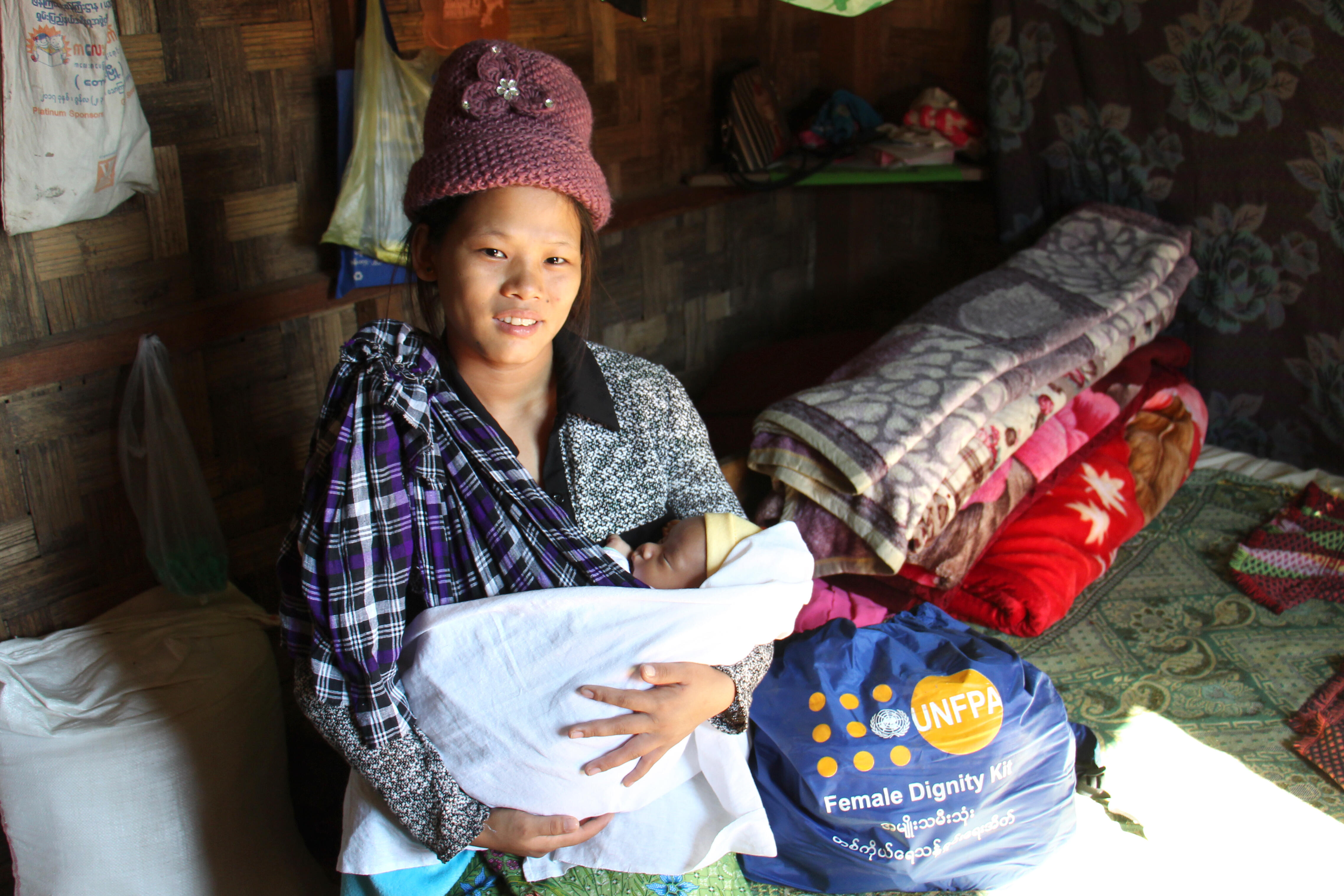Lu Tawng was facing a crisis within a crisis. In 2011, at the age of 11, she fled from her home together with her parents and the war reached her village in Myanmar’s conflict-torn Kachin State. Seven years later she still lived with her parents in a camp for displaced people. But when she became unintentionally pregnant, she was made to marry a man she did not know, and who is more than twice her age.
After the marriage – to which she did not consent – she had to move to a different camp, into the room of her new husband. He soon left to find work in the Hpakant’s jade mines, which are infamous for their lethal working conditions, heroine epidemic, sex trade, and extremely high rates of injectable drug addiction and HIV infection.
Only 19 years old, pregnant, and away from her family for the first time in her life, she found herself completely alone in the unknown camp. As her pregnancy progressed, she became more and more destitute. By her third trimester, she had pawned her basic mobile phone to survive. With the only way to contact her parents and her sole emotional support cut off, she was lost in her despair.
This is how the outreach worker from the local UNFPA Women and Girls Centre found her. The centre staff work closely with volunteers who live in the camps. Because they are themselves displaced, and are part of the camp community, they have a unique insight into the individual plights and needs of women and girls in the camps.
"It made me feel like I mattered"
Lu received a female dignity kit from the Women and Girls Centre. With basic items such as soap, shampoo, toothpaste, washing powder, a new set clothes and a comb, Lu could restore her personal hygiene and regain a sense of dignity. She was also given 20,000 Myanmar kyats (US$ 13) to help get back on her feet before the impending birth.
I know I'm not the only one to receive a dignity kit, but it made me feel special. Like I mattered to someone or for something. All clean and with new underwear too, I started to feel a little bit more confident, even brave”, says Lu.
She used some of the money to get her phone back from the pawnbroker.
I was so relieved to be able to speak with my parents again. They are the ones who love me, and to be in contact with them makes me feel supported”, says Lu. She does not blame her parents for the marriage anymore. She feels they did what they thought was best for her.
The volunteers look out for her
Displacement leads to a breakdown of the social safety structures, livelihoods, and access to health and education. In Myanmar, nearly a quarter million people are living in protracted displacement. Lu is one of those whose lives has been turned inside out by conflict, displacement and vulnerability compounded by deeply engrained gender inequalities.
Within the crisis of war and displacement, for women and girls, there are added crises of unwanted pregnancy, forced marriage, and physical and sexual violence. In addition, HIV is now reaching epidemic levels in Kachin State. At particular risk are women whose husbands have been infected through drug use or from unsafe sex with infected sex workers.
Lu gave birth to a healthy baby in the local hospital. UNFPA-supported staff helped her with the transport to and from the hospital. The immediate crisis is over, but she remains very vulnerable. One of her concerns is that she may have to pawn her phone again when her baby needs to start eating solid food.
But within her, there is also resilience and courage. She is still alone, but she is no longer desolate. She has made some friends, and the older women and the UNFPA volunteers in the camps are looking out for her now.
UNFPA has 24 Women and Girls centres is Myanmar’s conflict-affected areas of Kachin, Rakhine and Shan. They centres are funded through the Women and Girls First Programme with support from Australia, Finland, Italy and Sweden. The centres in Kachin are operated by UNFPA’s partner Metta Development Foundation. Lu is only one of tens of thousands of vulnerable women that UNFPA reaches in Myanmar despite challenging operational conditions.


